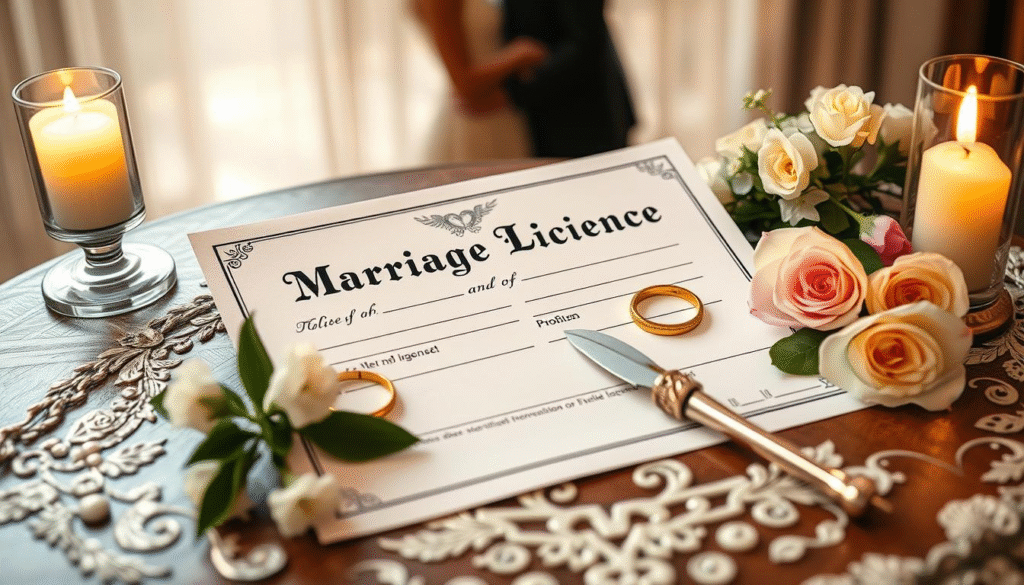
Marriage laws in Pakistan mix cultural traditions, religious beliefs, and legal rules. The 2nd marriage law shows a complex legal setup. It reflects Pakistan’s social dynamics well.
To understand these laws, one must know both Islamic traditions and modern legal standards. This knowledge is key.
Pakistan’s laws on second marriages balance personal rights and social norms. The legal system has rules for polygamous marriages. These rules protect everyone involved.
These laws also consider the cultural background. They try to make multiple marriages fair and clear.
Knowing the 2nd marriage law in Pakistan is vital for those thinking about second marriages. The law sets out what’s needed, how to document it, and what might happen next. By looking into these rules, people can make choices that fit with the law and their own lives.
Key Takeaways
- Pakistan’s marriage laws integrate Islamic principles with modern legal standards
- Second marriages require specific legal documentation and permissions
- Arbitration councils play a critical role in regulating polygamous marriages
- Legal consequences exist for unauthorized second marriages
- Women’s rights are a significant consideration in marriage regulations
Historical Background of Marriage Laws in Pakistan
The history of marriage laws in Pakistan is complex. It involves cultural, religious, and legal traditions. The country has changed a lot in its family laws and nikkah regulations after gaining independence in 1947.
Pakistan’s marriage laws come from Islamic principles and colonial laws. The country’s marriage laws are deeply rooted in religion and culture.
Evolution of Marriage Regulations
Important milestones in marriage laws include:
- 1947: Initial legal framework established after independence
- 1961: Muslim Family Laws Ordinance introduced critical reforms
- 1980s: Further refinement of nikkah regulations
- 2000s: Enhanced protections for marital rights
Influence of Islamic Law
Islamic law has greatly shaped marriage regulations. Sharia principles have influenced marriage contracts, inheritance, and spousal rights.
Development of Legal Framework
The legal framework today balances Islamic principles with modern laws. Muslim family laws have evolved, addressing social issues while keeping cultural values.
The evolution of marriage laws in Pakistan represents a nuanced dialogue between religious tradition and contemporary legal requirements.
Legal Framework of 2nd Marriage Law in Pakistan
Pakistan’s laws on polygamy come from Islamic rules and national laws. The Muslim Family Laws Ordinance of 1961 sets the main rules for second marriages. It outlines key points for legal polygamy.
In Pakistan, polygamous marriages are allowed but under strict rules. People planning such marriages face a detailed set of regulations. These rules aim to protect everyone’s rights.
- Obtaining written permission from the existing wife
- Registering the marriage with local authorities
- Demonstrating financial capability to support multiple families
- Ensuring equal treatment of all spouses
For a second marriage, men must follow strict steps. They need to apply to the Arbitration Council. This council checks if the marriage is valid and if it’s good for society.
The law aims to balance traditional practices with modern protective mechanisms for women’s rights.
Pakistan’s laws on polygamy require careful checks. This ensures second marriages are not rushed. The laws try to keep social order while respecting cultural and religious views on marriage.
Requirements for Second Marriage Under Pakistani Law
Getting married for the second time in Pakistan has its own set of rules. These rules are in place to protect everyone’s rights. They make sure that all marriages are clear and that everyone agrees.

People wanting to get married for the second time must follow certain steps. They need to gather all the right documents. This is to keep families safe and secure.
Written Permission: A Critical Requirement
Getting permission for a second marriage is very important. The man planning to marry again must get his first wife’s written okay. This involves a few key steps:
- Formal written notification to the existing spouse
- Detailed explanation of intent to remarry
- Documentation of wife’s response
Documentation and Legal Procedures
For a second marriage, you need a lot of paperwork. This includes:
- Marriage registration forms
- Proof of existing marital status
- Consent documents from the first wife
- Personal identification records
Role of Arbitration Councils
Arbitration councils are very important in second marriages. They check if the marriage is legal. They make sure everyone’s rights are looked after.
These councils look at the documents, check if there’s consent, and give advice. They help avoid legal problems. They protect the rights of both the current and future spouses.
The legal process of second marriage in Pakistan is designed to balance individual rights with societal responsibilities.
Rights and Obligations in Polygamous Marriages

Polygamous marriages in Pakistan have complex legal rights and duties. These laws protect everyone’s interests. They make sure all wives get financial support and fair treatment.
Wives in these marriages have special rights. These rights help keep their legal and financial well-being safe. They cover many parts of married life:
- Financial maintenance and support
- Property inheritance rights
- Custody considerations for children
- Equal treatment under Islamic legal principles
Dowry and bridal gifts are key in second marriages. They mix with legal rules, making financial plans for marriage complex. Each wife gets special care based on her role in the family.
Husbands have big legal duties in polygamous marriages. They must:
- Give fair financial support
- Ensure equal treatment for all wives
- Keep clear records of marriage deals
- Respect each spouse’s rights
Islamic laws stress fairness and equality in these marriages. Husbands must treat all wives equally in feelings and money matters.
The laws around polygamous marriages aim to protect everyone’s rights and dignity. They balance old customs with new legal safeguards.
Role of Arbitration Councils in Second Marriages

Arbitration councils are key in handling the complex world of 2nd marriage law in Pakistan. They act as important middlemen. They check if second marriages follow the law and protect everyone’s rights.
Composition and Legal Authority
These councils have legal experts and community leaders. They know a lot about marriage laws. Their main jobs are:
- Looking at applications for second marriages
- Checking if all legal papers are in order
- Thinking about how a second marriage might affect current marriages
- Making sure it follows Islamic laws
Decision-Making Framework
When they look at second marriage requests, they use a clear method. They look at many things to make good choices:
- Seeing if the first wife agrees
- Checking if the husband can afford it
- Thinking about the emotional and financial effects
- Checking if the husband treats both wives fairly
Legal Remedies and Appeals
Arbitration councils offer a clear way to challenge their decisions. If someone is not happy with a ruling, they can appeal. This ensures that everyone’s rights are looked after in the 2nd marriage law in Pakistan.
“Justice is not just about making a decision, but ensuring that the decision is fair and considerate of all perspectives.” – Pakistani Legal Expert
Financial Implications and Maintenance Rights

Understanding the financial side of second marriages in Pakistan is key. Maintenance rights are vital for protecting everyone’s economic well-being in polygamous unions.
Pakistani law sets clear rules for financial duties in second marriages. Husbands must show they can support all wives fairly. This ensures resources are divided justly.
- Financial responsibilities are carefully evaluated before granting permission for a second marriage
- Courts assess the husband’s economic capacity to support multiple households
- Maintenance calculations consider existing family obligations
Dowry and bridal gifts are big financial issues in second marriages. These gifts meet legal standards to safeguard women’s financial interests. The law checks these transactions to avoid any unfairness.
| Financial Aspect | Legal Requirement | Purpose |
| Maintenance Allocation | Equal Financial Support | Protect Wife’s Economic Rights |
| Dowry Documentation | Transparent Recording | Prevent Financial Mismanagement |
| Property Rights | Fair Distribution | Ensure Economic Security |
Maintenance rights need careful legal handling. Courts are key in solving disputes and making sure finances are fair in second marriages.
Economic justice remains key in protecting the rights of all in polygamous marriages.
Legal Consequences of Unauthorized Second Marriages
In Pakistan, understanding marriage laws is key. Unauthorized second marriages can lead to big problems for everyone involved.
Those who get married again without the right papers face big legal risks. These risks affect their legal and social standing.
Criminal Penalties and Fines
The Pakistani legal system has strict rules for marriage:
- Potential imprisonment ranging from 1-5 years
- Substantial monetary fines
- Criminal record affecting future legal proceedings
Civil Consequences
Unauthorized marriages can have serious civil effects:
- Marriage may be declared legally void
- Potential loss of marital rights
- Complications in property ownership
Impact on Inheritance Rights
Unauthorized marriages can greatly affect who gets what in inheritance:
| Legal Status | Inheritance Rights |
| Authorized Marriage | Full inheritance rights |
| Unauthorized Marriage | Limited or no inheritance rights |
“Understanding marriage laws is key to protecting individual and family legal interests.” – Pakistani Legal Expert
People must understand marriage laws to avoid serious legal issues. These issues can change their personal and financial lives a lot.
Women’s Rights and Protection Mechanisms
Pakistani muslim family laws offer important protections for women. They help women deal with the complex rules of marriage. These laws aim to safeguard women’s interests in both old and new marriage settings.
Women facing tough marriage situations have many legal options. Key protections include:
- Right to seek divorce in cases of unauthorized polygamous marriages
- Legal entitlement to maintenance and financial support
- Protection against arbitrary abandonment
- Access to arbitration councils for dispute resolution
The nikkah regulations in Pakistan uphold women’s basic rights. These laws give women the power to fight unfair marital practices. They also allow women to seek court help when their rights are not respected.
Women’s rights groups are vital in helping people through family law issues. They offer:
- Free legal advice
- Help in family courts
- Counseling services
- Support for changing laws
These protections show a fair balance between Islamic values and modern human rights. The legal system keeps getting better at supporting women’s freedom and respect in marriage.
Recent Legal Developments and Case Studies
The laws around second marriages in Pakistan are changing. This change shows the complex mix of social and legal issues. Courts are now looking at polygamy in new ways, which challenges old views and protects people’s rights.
Legal experts are studying important court decisions. These decisions are changing how we see marriage laws. They show the balance between old traditions and new laws.
Landmark Court Interpretations
Recent cases have looked closely at second marriage laws in Pakistan. They have set new rules for courts to follow. Key points include:
- Stricter checks on consent from first wives
- More detailed paperwork needed
- Clearer rules on money matters
Legislative Amendment Trends
Pakistan’s laws have been updated to deal with polygamy. These updates aim to:
- Protect women’s rights
- Make sure marriages are properly recorded
- Have better ways to solve disputes
“The evolution of marriage laws reflects Pakistan’s commitment to balancing traditional practices with modern legal protections.” – Legal Reform Commission
Contemporary Interpretations
Today, legal experts are pushing for changes. They want to make sure old traditions and new rights are both respected. Judicial views now focus on fairness and clear consent in polygamous marriages.
These ongoing changes show a forward-thinking approach to marriage laws in Pakistan’s complex society.
Conclusion
The laws around second marriages in Pakistan are complex. They mix religious traditions, cultural norms, and legal rules. People thinking about a second marriage need to understand these laws well.
These laws focus on being open and getting everyone’s agreement. You need to get permission from your first wife and go through arbitration councils. This shows the government’s effort to protect everyone’s rights.
The laws on second marriages in Pakistan show a balance between old Islamic rules and new legal views. Anyone thinking about a second marriage must know the legal and social impacts. Getting advice from a legal expert is very important.
Pakistani society is changing, and so are its marriage laws. The balance between personal freedom, religious beliefs, and women’s rights is key. It’s important to be aware, respectful, and well-informed about these laws.
FAQ
What are the legal requirements for a second marriage in Pakistan?
A man needs written permission from his first wife to marry again in Pakistan. He must give valid reasons for the second marriage. He also needs to show he can support both wives equally financially.He must follow the rules of the Muslim Family Laws Ordinance. This includes all the necessary paperwork.
Is polygamy legal in Pakistan?
Polygamy is legal for Muslim men in Pakistan, but it’s strictly controlled. A man needs his first wife’s consent and approval from the Arbitration Council to marry again. He must treat all wives equally, financially and in living conditions.
What are the consequences of an unauthorized second marriage?
An unauthorized second marriage can lead to serious legal trouble. The husband might face fines, jail time, and could lose the second marriage. The second marriage might not be recognized legally.This can affect inheritance and the legal status of children from the second marriage.
How does the Arbitration Council evaluate a request for a second marriage?
The Arbitration Council looks at several things when considering a second marriage. They check the husband’s financial situation, his reasons for the second marriage, and the first wife’s consent. They also consider how it might affect the family.They make sure the marriage is legal and ethical.
What rights do wives have in a polygamous marriage?
In a polygamous marriage in Pakistan, wives have certain rights. They are entitled to financial support, property rights, and protection from discrimination. The first wife has the right to know and can challenge the second marriage if she feels her rights are at risk.
Can a woman prevent her husband from taking a second wife?
A woman can’t stop her husband from marrying again, but she can try. She can include a clause in their marriage contract that requires his consent before marrying again. If he doesn’t follow this, she can seek divorce or legal action.
What documentation is required for a legal second marriage?
To legally marry again, a man needs to apply to the Arbitration Council. He must provide proof of his first marriage and show he can support two wives financially. He also needs his first wife’s written consent and all the usual marriage documents required by Pakistani law.
How do maintenance rights work in polygamous marriages?
In polygamous marriages, the husband must provide equal support to all wives. This includes financial help, housing, and other necessities. The law ensures fair treatment, so no wife is financially disadvantaged.





